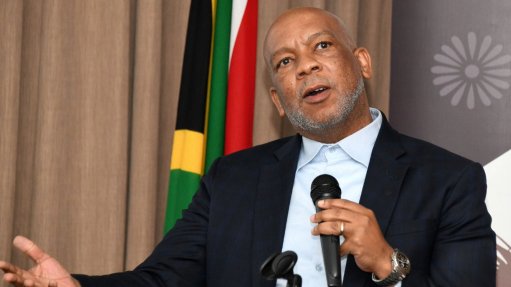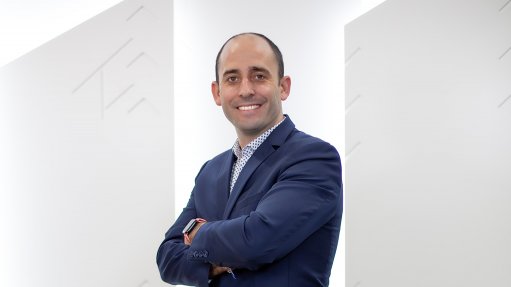Interwaste prepared for implementation of zero liquids to landfill legislation
Waste management company Interwaste on Thursday questioned whether South Africa was ready and able to manage zero liquid waste to landfill, as is required under legislation due to take effect on August 23.
“Over the past several years, new legislation has been developed to improve the disposal of waste to landfill and, more importantly, encourage our industry to seek alternative and sustainable solutions.
“One of the most recent significant developments has been the Department of Environment, Forestry and Fisheries placing a ban on all forms of liquid waste, as well as hazardous waste with a calorific value of more than 20 MJ/kg from landfill disposal, effective August 23,” Interwaste business development and marketing director Kate Stubbs said in a statement.
Previous regulations stated that hazardous liquid waste with high calorific values of more than 20 MJ/kg – such as refinery waste, chemical processed paint waste, hydrocarbon contaminated liquids, sludges and chemical solvents, ought to have been progressively banned from landfills as from August 2017.
However, all liquid wastes would now be banned from landfill, as well as reactive wastes, recyclable waste oils, whole waste tyres, lamps, lead acid batteries and any waste with a calorific value of more than 20 MJ/kg.
Stubbs added that, with additional waste streams shifting towards this prohibition on a yearly basis, it became essential that industry not only embraced the legislation, but took the necessary steps to comply with the legislation.
She believes the prohibitions in legislation demanded alternative and more sustainable waste management solutions that would contribute to creating a more efficient waste economy in South Africa.
BEST PRACTICE
“To best manage these new regulations, it is important for waste producers to understand that not only is there ample room for new innovation in this space but currently, there are successful innovations already in practice that are driving legislative compliance,” said Stubbs.
She noted that there were solutions for hazardous liquid waste to be repurposed into alternative fuel sources for energy production.
Additionally, Stubbs pointed out there was an opportunity to start looking at some of these liquid waste streams as valuable resources that could be used to add value to the economy – reducing dependence of fossil fuels and recreating alternative products with value.
Interwaste has planned ahead of this legislation to ensure that already developed and sustainable solutions are available to its clients.
“We have developed significant capacity over the years for the treatment, recycling or recovery of qualifying wastes at our licensed waste management facilities through the recycling of qualifying liquid and hazardous sludge wastes,” Stubbs remarked.
The company has a waste blending platform in Germiston, which produces a waste derived fuel for use as an industrial fuel.
“As government aims to move towards a circular economy and improve our environmental standards as a country, there will no doubt be further stringent legislation down the line.
“As such, it is up to waste companies to take a proactive approach by seeking relevant investment and technology development opportunities for alternative waste disposal solutions; not only to meet legislative requirements, but also to find solutions that are commercially viable and provide the producer with environmentally sound alternatives,” said Stubbs.
Comments
Press Office
Announcements
What's On
Subscribe to improve your user experience...
Option 1 (equivalent of R125 a month):
Receive a weekly copy of Creamer Media's Engineering News & Mining Weekly magazine
(print copy for those in South Africa and e-magazine for those outside of South Africa)
Receive daily email newsletters
Access to full search results
Access archive of magazine back copies
Access to Projects in Progress
Access to ONE Research Report of your choice in PDF format
Option 2 (equivalent of R375 a month):
All benefits from Option 1
PLUS
Access to Creamer Media's Research Channel Africa for ALL Research Reports, in PDF format, on various industrial and mining sectors
including Electricity; Water; Energy Transition; Hydrogen; Roads, Rail and Ports; Coal; Gold; Platinum; Battery Metals; etc.
Already a subscriber?
Forgotten your password?
Receive weekly copy of Creamer Media's Engineering News & Mining Weekly magazine (print copy for those in South Africa and e-magazine for those outside of South Africa)
➕
Recieve daily email newsletters
➕
Access to full search results
➕
Access archive of magazine back copies
➕
Access to Projects in Progress
➕
Access to ONE Research Report of your choice in PDF format
RESEARCH CHANNEL AFRICA
R4500 (equivalent of R375 a month)
SUBSCRIBEAll benefits from Option 1
➕
Access to Creamer Media's Research Channel Africa for ALL Research Reports on various industrial and mining sectors, in PDF format, including on:
Electricity
➕
Water
➕
Energy Transition
➕
Hydrogen
➕
Roads, Rail and Ports
➕
Coal
➕
Gold
➕
Platinum
➕
Battery Metals
➕
etc.
Receive all benefits from Option 1 or Option 2 delivered to numerous people at your company
➕
Multiple User names and Passwords for simultaneous log-ins
➕
Intranet integration access to all in your organisation


















